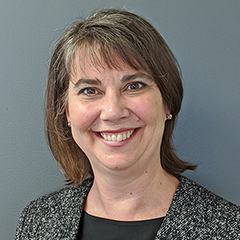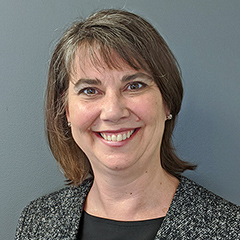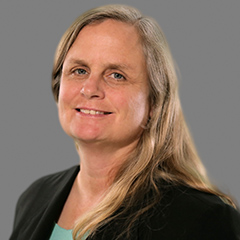Policy Recommendations
Mathematica co-hosted a webinar with the Blue Shield of California Foundation to share recommendations for preventing intimate partner violence through state Medicaid policy.
Progress Together: Transforming and Improving Health Care in California
Since Mathematica’s first project in California in 1976, our multidisciplinary teams have partnered with state and local governments, foundations, businesses, universities, and professional associations to improve programs and transform health care policy through strategy development, impact analyses, and program evaluations. Our experts dive into urgent social challenges with rigor and objectivity to uncover evidence and understanding that weathers the toughest tests.
Our dedicated health team has deep expertise in assessing policy, improving programs, and employing health information technology to address the quality, efficiency, delivery, affordability, and financing of health care. In 2009, Mathematica opened an office in Oakland, and today, more than 40 employees work from Oakland, and many more work from home in California. Explore our work partnering with California health care agencies and foundations to improve health care services and expand access to care.
"Because California is the largest state in the nation and an incubator for innovative health care ideas, what we do here is relevant and important to other states and the nation as a whole."

Diane Rittenhouse Senior Fellow at Mathematica
Strategy and Evidence Building
Preventing Domestic and Intimate Partner Violence
Mathematica is identifying and analyzing strategies for preventing and addressing domestic violence and intimate partner violence through Medicaid for the Blue Shield of California Foundation. We conducted a landscape review, consulted about 20 experts, and held a focus group with people who experienced domestic and intimate partner violence. We shared findings with communities in California and other states via a webinar and produced two policy briefs that summarized policy recommendations relevant for Medi-Cal and other state Medicaid programs. A final report will synthesize the state of the evidence base of interventions that prevent intimate partner violence and address the needs of those affected by it.
Addressing the Health Care Workforce Crisis
To inform the planning needs of the health workforce in California, Mathematica conducted a rapid review of evidence focused on understanding the highest impact health workforce investment strategies. We briefed the director of California’s Office of Statewide Planning and Development on findings and implications and released a short report and a series of thematic issue briefs for the California Health Care Foundation.
In response to these findings, Mathematica established a two-year Transitional GME Program Office in 2020 to advance GME expansion in California. The Transitional Program Office provides interim leadership related to GME expansion in California; coordinating with GME experts and leaders at the state and national levels and producing resources such as toolkits for health care organizations interested in developing or expanding GME programs.
We are also exploring, in partnership with California Health Care Foundation, other efforts to expand and diversify the primary care workforce in California and better address the healthcare needs of communities. In this brief, we examined the effects of and future considerations for the University of California Programs in Medical Education on California’s physician workforce.
Impact Analysis
Analyzing the Impact of the Sugar-Sweetened Beverage Tax in Oakland
Mathematica studied the impacts of sugar-sweetened beverage taxes on retail prices, purchases, and child and adult consumption of beverages in Oakland for the Robert Wood Johnson Foundation. We collected information from stores and a matched comparison group of consumers in Oakland, including prices, purchase information from interviews with customers exiting the stores, and household surveys of purchases and consumption.
Because the Robert Wood Johnson Foundation was particularly interested in populations with historically high rates of diet-related chronic disease and consumption of such beverages were of particular interest, we oversampled stores in specific areas, enabling us to assess the impact of the tax for these populations and for Oakland overall after applying sample weights. Learn more about the Oakland study in the journal article published in Economics & Human Biology or by listening to our On the Evidence podcast.
Program Evaluation
Evaluating the Statewide Dental Transformation Initiative
To accelerate improvements in dental care and oral health for Medi-Cal eligible children, California is testing various strategies through a multifaceted set of interventions. In collaboration with the California Department of Health Care Services, Mathematica is evaluating the Dental Transformation Initiative (DTI) program. the DTI program aims to improve access to and receipt of preventive dental services, earlier and more effective identification and management of dental caries and oral health, and continuity of care. We collect a variety of data in English and Spanish: surveys of providers and beneficiaries; key informant interviews; case studies; and analyses of eligibility, claims, and other administrative data to assess the program’s success in improving the dental and oral health outcomes of children in the state. We conducted telephone interviews with parents and caregivers of children engaged by the DTI program across 10 counties in California to understand their experiences with dental care.
Evaluating the Healthy San Francisco Program
Mathematica designed and conducted a comprehensive, responsive, and flexible evaluation of the Healthy San Francisco program using a mixed-methods approach. The evaluation blended a range of qualitative and descriptive information on implementing and operating the program and the population it serves with a variety of quantitative data and analytic methods aimed at measuring and monitoring the effects of Healthy San Francisco. Mathematica conducted this evaluation for the San Francisco Department of Health and subcontracted with researchers from the Center for Studying Health System Change and the University of California, San Francisco, as well as with Corey, Canapary & Galanis.
Related Staff
To connect with one of our experts on these projects or to get more information about our health work in California, please email to info@mathematica-mpr.com.



